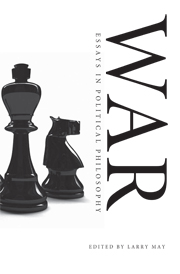15 - Revenge and Demonization
Published online by Cambridge University Press: 05 June 2012
Summary
Vengeance is … the wildest, sweetest kind of drunkenness, both for those who must wreak vengeance and for those who wish to be avenged.
– Milovan Djilas as quoted in Jon Elster, “Norms of Revenge,” Ethics 100 (July 1990): 871Introduction
The thirst for revenge seems to many one of the more primitive and noxious sentiments in war. It brings to mind personal vendettas and lawless punishment, feuds where blood and not money becomes the coinage for exchange. It conjures up the grievances that militias, gangs, and armed kin stand ready to carry out and pass on from generation to generation. It reminds us of the blind passion that fuels war crimes. It speaks to the sectarian violence and reprisal killings that, as I write, compete with the insurgency and counterinsurgency for number of lives taken each day in the war in Iraq.
But as negative as many of our associations of revenge are, the desire for vengeance is known intimately by most of us, and sometimes savored, whether or not we heed its impulse. It is a close cousin to other sentiments of anger we are less quick to find fault with, such as a retributive sense of justice, righteous indignation, moral protest, and moral outrage. It can mingle deeply with patriotism, as it did in the wake of 9/11. Soldiers who mobilized shortly after 9/11 did not always use the word “revenge,” but many spoke unflinchingly of their anger.
Information
- Type
- Chapter
- Information
- WarEssays in Political Philosophy, pp. 289 - 306Publisher: Cambridge University PressPrint publication year: 2008
